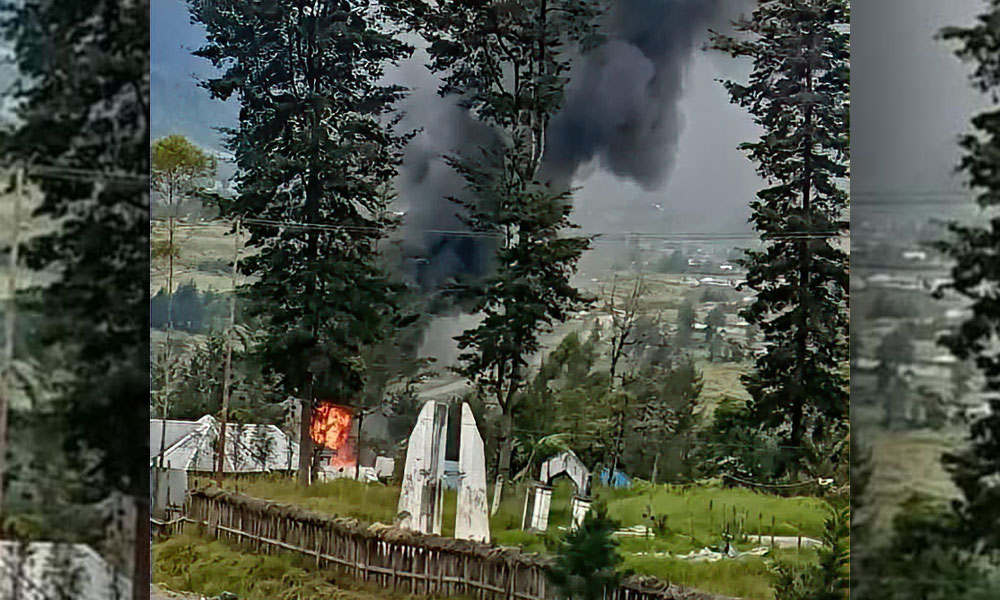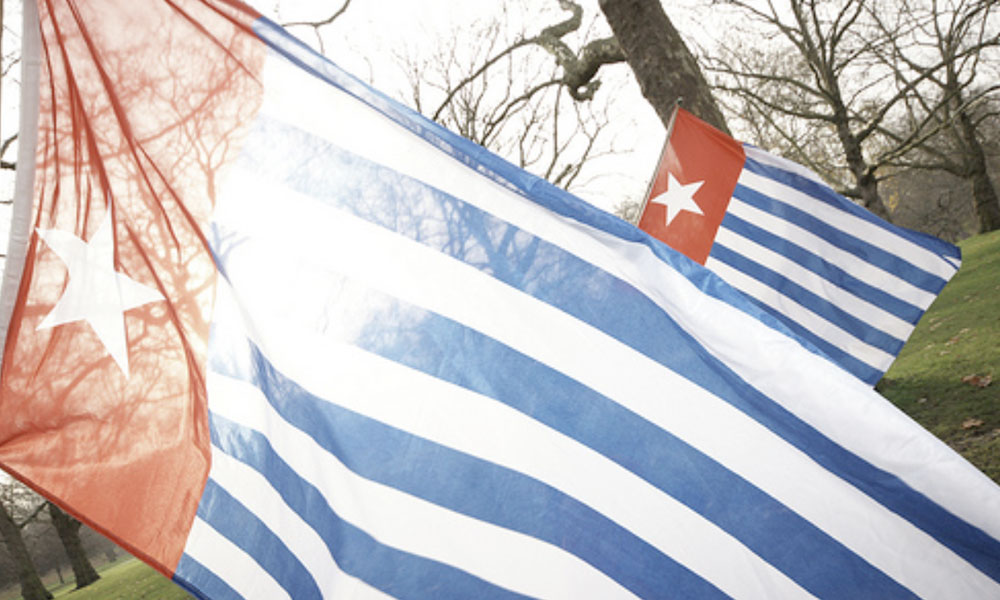The past week has seen an escalation of hostilities between Indonesian joint security forces and armed separatist fighters in the embattled province of West Papua.
The latest series of violence began after the separatists set houses ablaze in revenge for the shooting death of 35-year-old Ali Kogoya, who was killed by state security forces on Sunday, April 3, according to a report by CNN Indonesia.
On April 5 and 6, at least 16 houses in the village of Kimak village in Puncak district, West Papua, were set ablaze by Papuan separatist rebels, who then ambushed security personnel who came to put out the blaze.
"The rebel group always makes a counter-attack when some of its fighters are arrested or have been shot by officers.
"We have reminded our personnel to be on alert. I've asked them not to be easily provoked because there would be retaliation," Papua police chief Mathius Fakhiri told local media on Thursday.
Last month Amnesty International called on Indonesian authorities to immediately halt plans to develop a sprawling gold mine the size of the city of Jakarta in the province, saying it risks fuelling conflict and violating the land rights of indigenous Papuans.

Intan Jaya Regency, where the gold ore deposit known as Wabu Block is located, has become a hotspot of conflict between Indonesian security forces and Papuan independence groups in recent years.
In February this year, it was reported that the governor of Papua province Lukas Enembe had established a specialised legal team to better protect and represent indigenous Papuans subjected to human rights abuses and facing other legal cases.
Lukas named three lawyers — Saur Siagian, Stefanus Roy Rening and Amnesty International Indonesia executive director Usman Hamid — to represent them.
This came after Coordinating Minister for Maritime Affairs and Investment Luhut Pandjaitan filed a criminal lawsuit and a civil lawsuit for IDR100 billion (RM29.683 million) — both for defamation — against Lokataru Law and Human Rights Office co-founder Haris Azhar and the head of the Commission on Missing Persons and Victims of Violence (KontraS) Fatia Maulidiyanti.
Human rights activist Veronica Koman was also forced into exile after being slapped under the country's information and electronic transactions law for alleged "provocation" and for "spreading hoaxes" for her role in highlighting abuses.
A history of colonial oppression
West Papuans are indigenous to their massive island which is rich in national resources. The eastern half of the island is the independent state of Papua New Guinea but the Western half was co-opted into Indonesia in the 1960s as both were formerly occupied and governed by the Dutch.
Indonesia claims it is part of the country, but some native Papuans claim that independence activists are arrested and murdered and their homeland exploited for its vast national resources.
It was formally incorporated into Indonesia after a widely criticised 1969 referendum which was conducted in an atmosphere of intimidation, with just over 1,000 tribal chiefs selected and instructed to vote for West Papua to join Indonesia.
Since then, thousands of civilians -mainly indigenous tribal people - have lost their lives.
Flying the Morning Star flag, a symbol of Papuan independence, is banned in Indonesia and independence activist Filep Karma was convicted of treason after raising the flag publicly and spent 11 years in jail before his release in 2015.

Unlike Timor Leste (East Timor), a nearby territory that Indonesia invaded in 1975 and relinquished in 1999, the freedom movement in West Papua has failed to garner many headlines.
West Papua Uprising
Three years ago, the situation flared up following the mass detention of Papuan students in Surabaya, East Java, for bending a flagpole bearing the Indonesian flag in front of a dormitory on Indonesia’s national day, which was celebrated on Aug 17.
This resulted in the West Papua Uprising which swept across 22 towns in the Indonesian province of West Papua and 17 cities in other parts of Indonesia from Aug 19 to Sept 30, 2019, during which a total of 61 people lost their lives.
Activists also released photographs of burning villages and claimed the Indonesian military was pursuing a scorched-earth policy and terrorising the local population.
Indonesia also expelled foreign journalists and imposed an internet blackout on the region during that period.
Human rights activists have claimed that at least 22,800 civilians were displaced during the period of the Uprising, while around 6,000 West Papuan students in Java and elsewhere returned to their homeland.
In solidarity
During that period, thousands of Papua New Guineans also marched through its capital, Port Moresby, in solidarity with their West Papuan neighbours.
In 2020, Papuan activist Buchtar Tabuni, a senior figure in the United Liberation Movement for West Papua, was sentenced to 11 months in prison, as were Agus Kossay and Stevanus Itlay of the West Papuan National Committee.
Four university students - Alexsander Gobai, Fery Kombo, Irwanus Uropmabin and Hengki Hilapok - were each sentenced to 10 months in jail.
The continued silence of Indonesia's neighbours over the situation in Papua has repeatedly been cited as an example of Asean's lack of genuine political will to combat human rights abuses. - Mkini




No comments:
Post a Comment
Note: Only a member of this blog may post a comment.